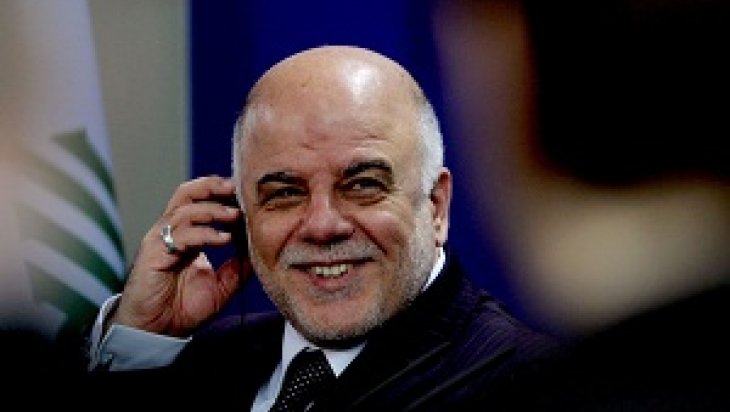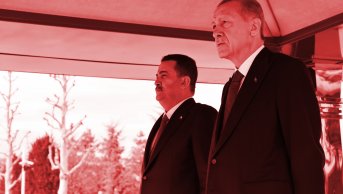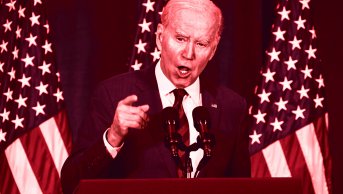Cabinet Reshuffle in Iraq

Iraqi Parliament, on its meeting on 15th August 2016 has approved 5 out of 6 technocrat names from the list Iraqi Prime Minister Haidar Al-Abadi has proposed for the vacant ministries. In the meeting; appointment of Cabbar Ali Hussein Al-Luaybi to Oil Ministry, appointment of Kassem Fincan Al Hamami for Transport Ministry, appointment of Abdulrezzak Abdulcelil Al-Issa to Higher Education Ministry, appointment of Hassan Al-Cenabi to Ministry for Water Resources and appointment of Aan Nafi Avsi to Construction and Housing Ministry has been approved; whereas Abadi’s appointment of Yusuf Ali Al Asadi to the Trade Ministry has been rejected by the members of parliament. Sunni Arab members of Parliament from the Wataniye Coalition, led by Iyad Al-Allavi have objected Yusuf Al-Asadi, asserting that the post belonged to the Wataniye Coalition. It is also asserted that Al-Asadi’s name is first suggested for the Industry Ministry by Al-Abadi; but a last minute change led the presentation of his appointment to Trade Ministry. Wataniye Coalition; demands that even if a technocrat name is put forward for Trade Ministry; that name also needs to approved by Wataniye Coalition. Hence, it is thought ministers have not been approved by majority, being ratified by only 104 out of 220 members of parliament. At the same time, Turkmen members of Iraqi Parliament has also objected the cabinet revision as there are no Turkmen ministers in the cabinet and they have protested the voting.
The revision in the Iraqi cabinet is an outcome of the civil unrest against the corruption, ethnic and political quotas in the government; expressed by demonstrations and protests. Iraqi Prime Minisiter Haidar Al-Abadi initially wanted to reshuffle the cabinet in April; however the revision has been postponed due to political bargaining and the fight against ISIS. Abadi, in the framework of his cabinet pre-vision; has promised to change ministers which has party allegiance with talented technocrats who have free political will. Abadi, wants to extend this change to Deputy Ministers and officials like General Directors. Nevertheless, this operation has encountered many obstacles in the recent months. The conflict between political parties and powers in the Parliament have hindered Abadi’s revision. The lack of confidence between the political parties and powers and doubts about impartiality of ministers asserted by political organizations have delayed Abadi’s cabinet reshuffle.
Moreover, political parties have also struggled to delay cabinet reshuffle as they were making political mileages using the power of the ministries they held. However, the approval of ministries except the Trade Ministry with unanimity shows that there is a political consensus on cabinet reshuffle.
The declared objective in the Cabinet Reshuffle is having independent technocrats as ministers and not letting parties and masses to use the sources and the opportunities of ministries for political benefits. Furthermore, the reshuffle also aims to deal with financial and administrative corruption between Iraqi state institutions, which take their roots from partisan and sectarian quota system. As a matter of fact, the quote system in the government led to misuse of the state resources and corruption. Partisan quota system has left auditing mechanism ineffective. All groups have used the ministries they had for the benefits of their own political group. This situation has led to degeneration of the state mechanisms and left the state institutionalization incomplete. Hence, it is believed that bipartisan, independently appointed technocrat ministers are easier to be controlled and audited.
When the biographies of the newly appointed ministers are analysed; it can be said that they are talented and independent technocrats. Oil Minister Cabbar El-Lueybi is an oil expert and has worked for oil sector for more than 40 years. He has received his Bachelor’s and Master’s Degree on Chemical Engineering, in the Great Britain. He has worked as the Manager of the Southern Oil Company for many years; and later served as the undersecretary of Iraqi Oil Minister. Cabbar El-Luaybi, since his inauguration to his new post; have promised to resolve the oil-related issues between the Iraqi Kurdistan Regional Government (KRG) and Iraqi Central Goverment; and he has also promised to increase Iraq’s oil production and country influence in OPEC and OAPEC.
Transport Minister Kassem Fincan Al Hamami is a sailor from Basra. He has worked at sea transport and port management sector for more than 40 years. Al Hamami has an academic career acknowledged outside Iraq and is a known researcher on Iraq and Arab World subjects. When his academic works are analysed; it can be said that he has national identity far from racism and is politically impartial. Hamami, in his articles; suggests Iraq to have developmental relations with all of its neighbours. Hamami has promised to build up Transport Ministry in 60 days from his first day in the office.
New Higher Education Minister, Abdulrazzak Al-Isa is a famous academic and received his doctorate on Organic Chemistry in the Great Britain. He has more than 40 years of experience in Higher Education sector. He has served as the Head of the Board of Kufa University and the advisor to Higher Education Minister. Al-Isa, in his statement has promised to keep Iraqi universities clean from political competition and party conflicts from the day ahead of his appointment. He has also said that he will not let some groups to monopolize Iraqi universities in upcoming elections and promised to follow national principles in the development of Iraqi academic institutions.
Hassan al-Janabi, Minister of Water Resources, did his master’s degree at the department of Water Management Engineering in Sydney University and received his doctorate on engineering in Warsaw University. Hassan al-Janabi was appointed as Iraqi Ambassador to Japan in 2016. Al-Janabi worked in different fields such as water engineering, implementation of environmental and agricultural policies, various project management in Africa, Europe and Australia apart from Iraq. At the same time, he conducted various project concerning water resources. Al-Janabi, once and for all, carried out a project related to the addition of al-Ahwar site to the World Heritage List.
Ann Nafe Ousi, Minister of Construction and Housing, is a Christian from Baghdad. He received his doctorate on construction engineering. Ouasi also served approximately 25 years in Baghdad Municipality. The appointment of Minister of Construction and Housing as a woman from Christian’s minority in Iraq is a significant development.
However, Turkmens, one of the constituent elements of the Iraq, were not included in the name list for ministries and this is contrary to Iraq’s unity, integrity and the claim of being equal and democratic country. Thusly, Turkmens were represented with at least “1” minister in every cabinet formed after 2003. Whereas Christian minority is represented in the cabinet, there are no Turkmen ministers in the cabinet, which is contrary to the principle of equality. In addition, Turkmens, who have 10 MPs in parliament of Iraqi Government expressed as “National Unity Government”, are not being represented in parliament currently. Under these circumstances, national unity is overshadowed and Turkmens are being disregarded. Turkmens, main losers after ISIS, seem to be excluded from the political process.
Although the ministers approved by Iraqi parliament are seen as “technocrat and independent”, nomination of these persons by certain political parties and groups raises a question mark in minds when it comes to their independence. Newly appointed ministers might be under pressure from political parties in the forthcoming period due to being nominated by political groups. Furthermore, political links in countries experiencing democratization process ease the protection of corporate function. At this point, it should be considered that candidates without political protection might be under pressure from political and militia groups. Specifically in Iraq, developing state supervision mechanism and safety device becomes inevitable in order to carry out a cabinet which is technocrat and politically independent. However, it is difficult to say that full control over government has been ensured since Al Abadi Government has been formed in August 2014. With the complexity of the controversial process with ISIS, regional and global interferences, political conflicts with KRG and the position of Sunni Arabs after ISIS process reduce the control of Abadi over government. Therefore, it seems difficult to ensure the continuity of the political stability and government in Iraq. At this point, the establishment of a new regime mechanism with full participation by performing a real national reconciliation in Iraq remains as the best solution.











